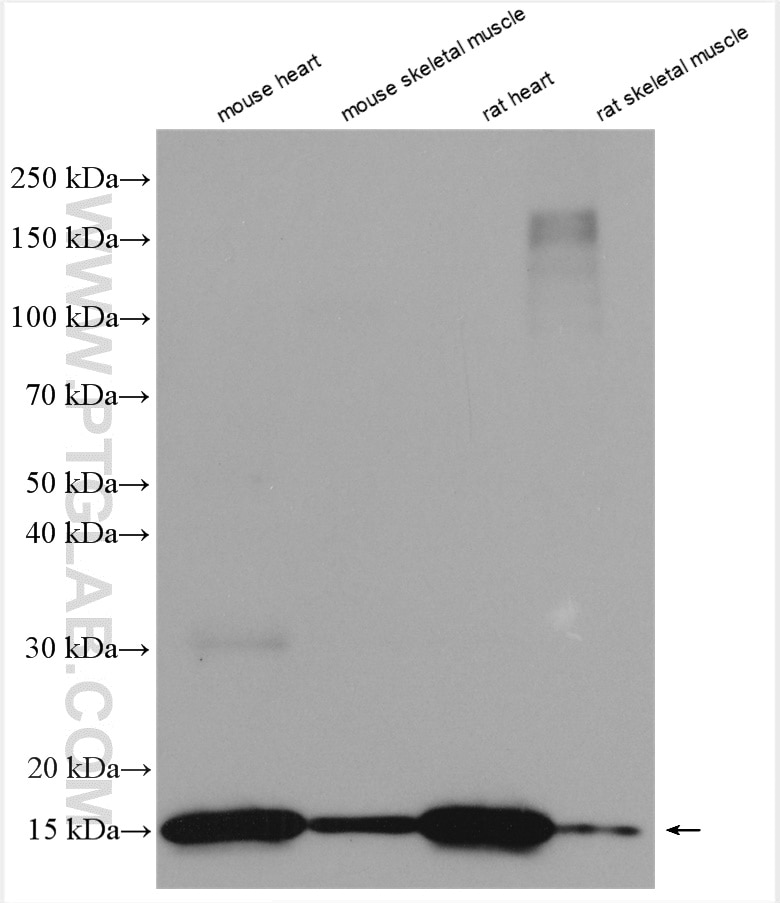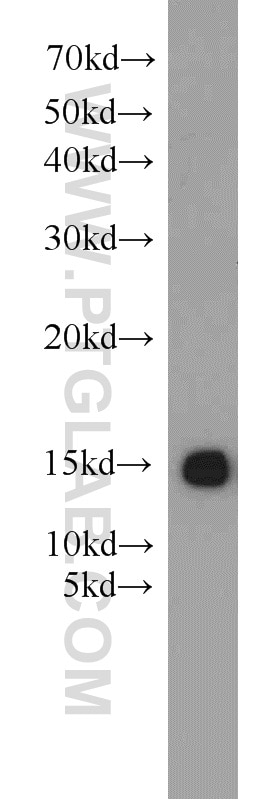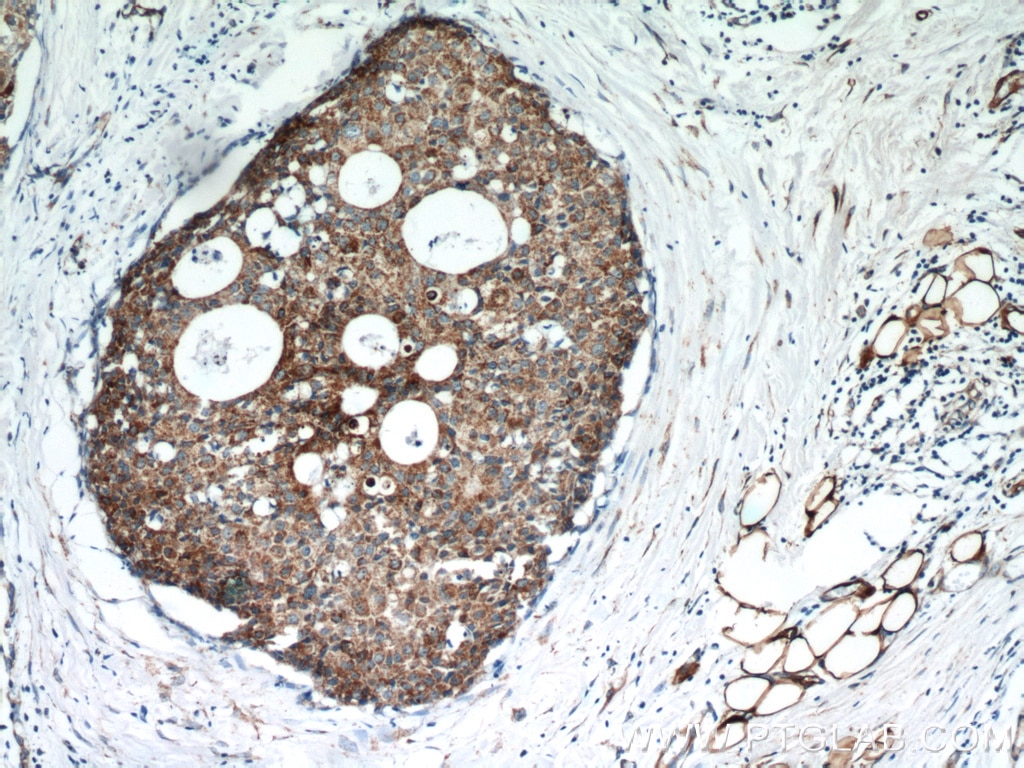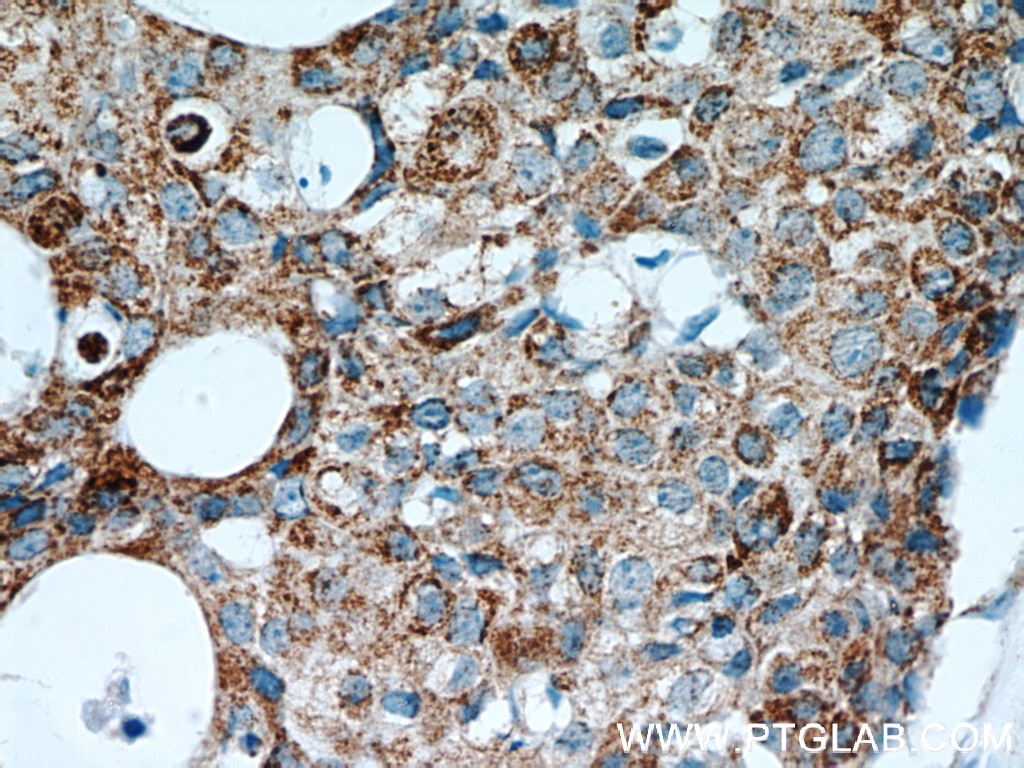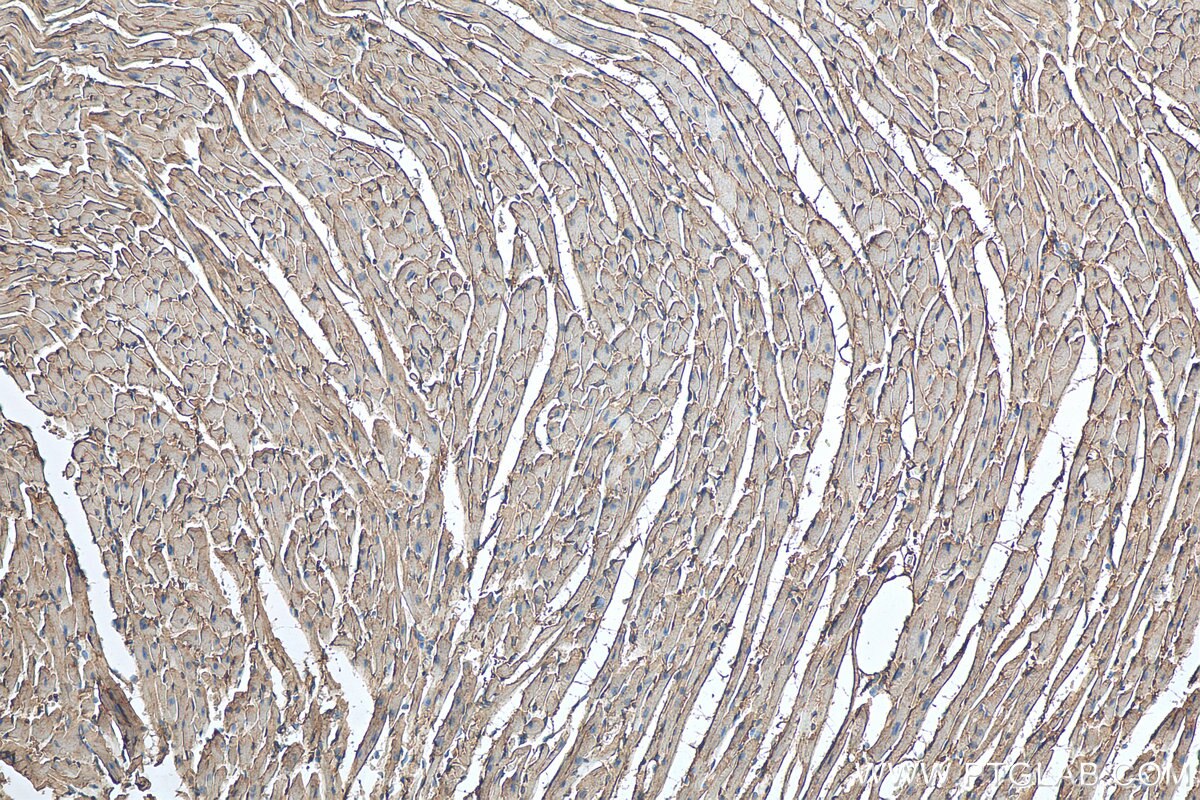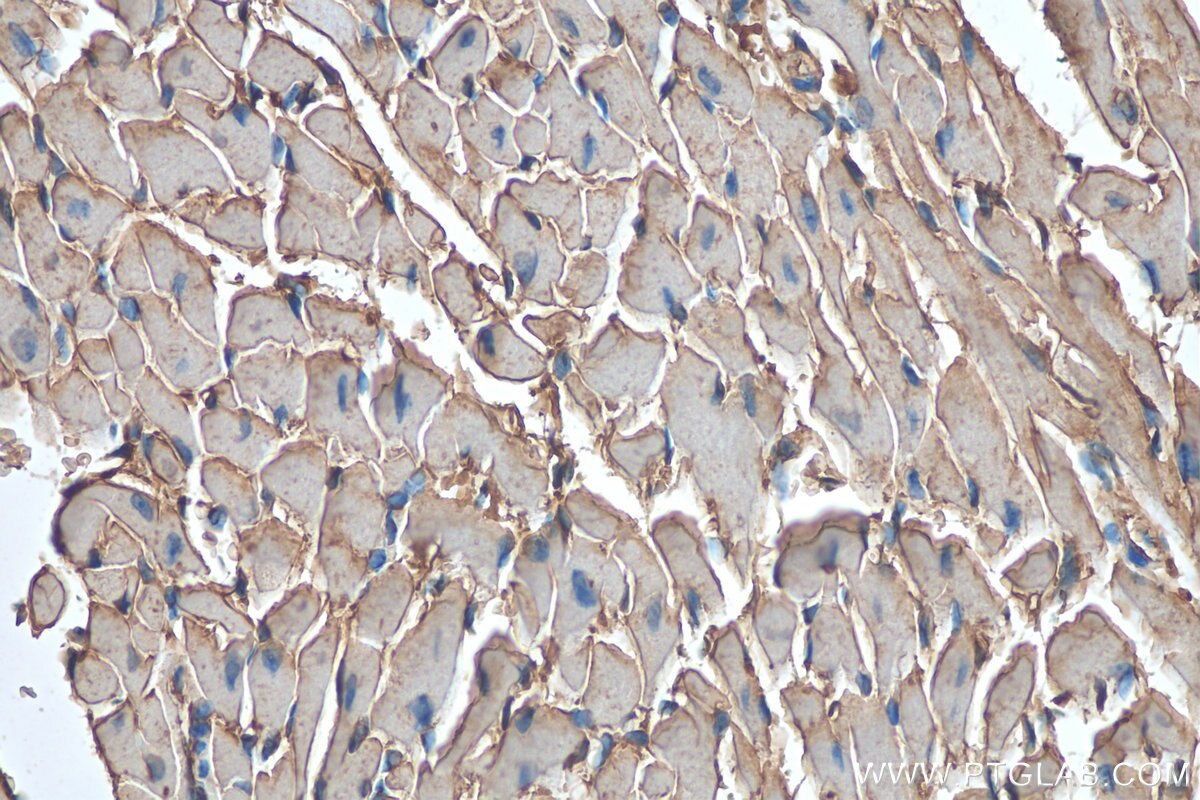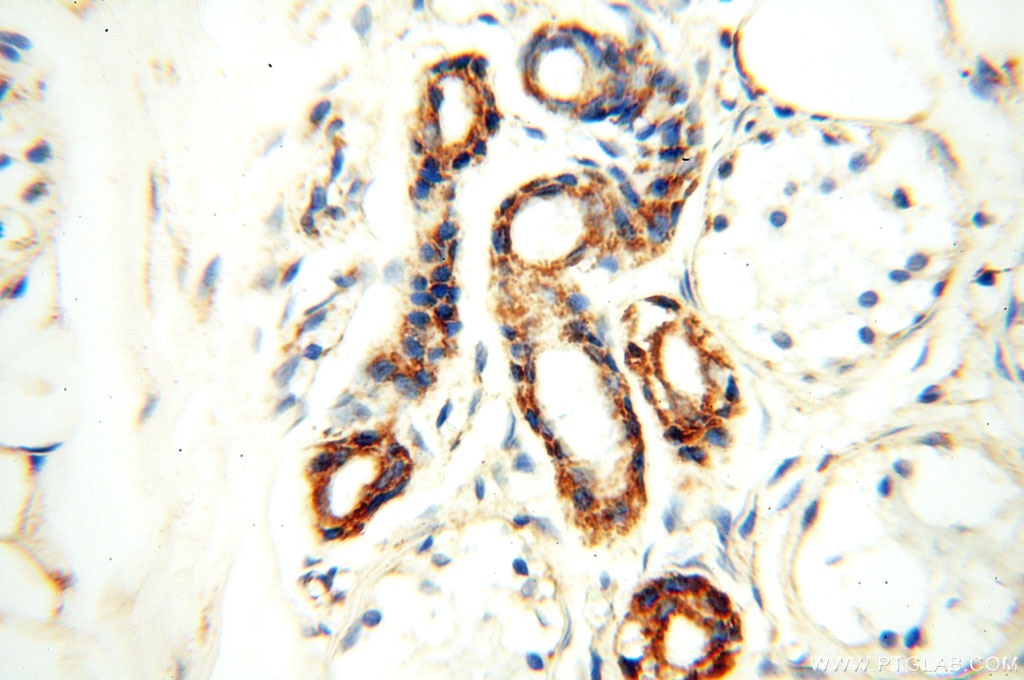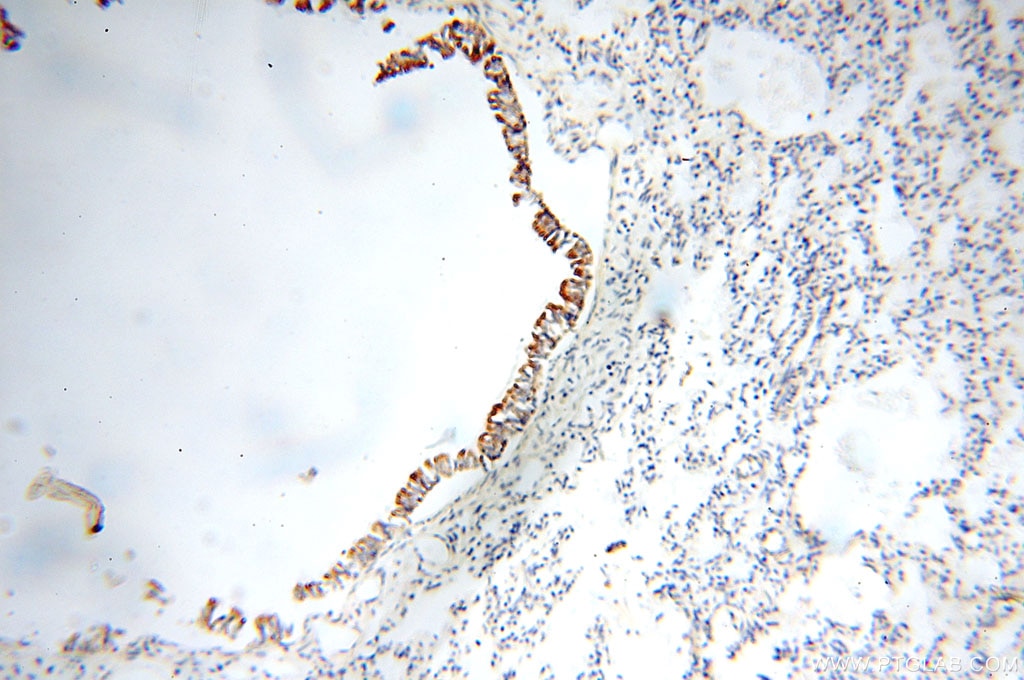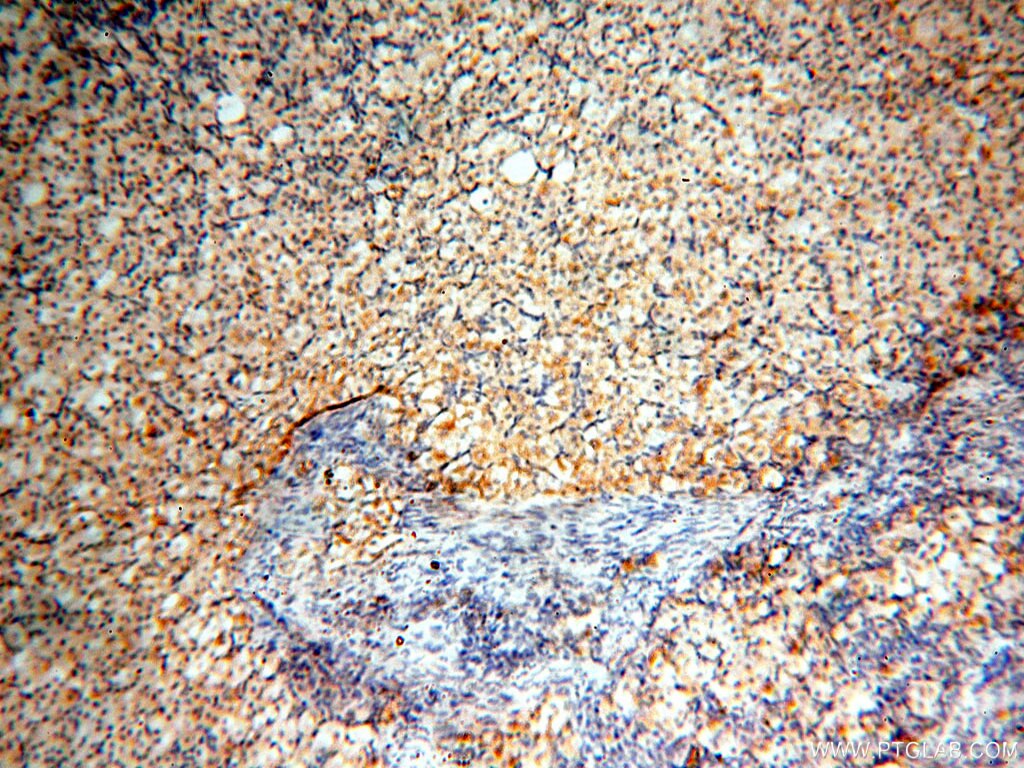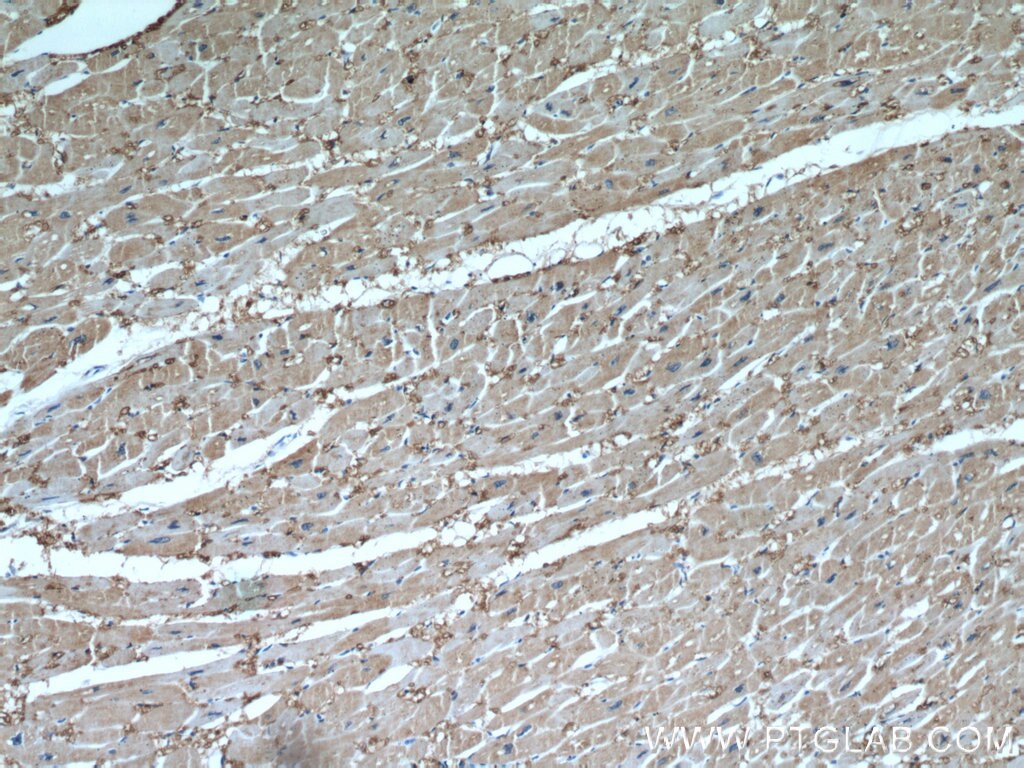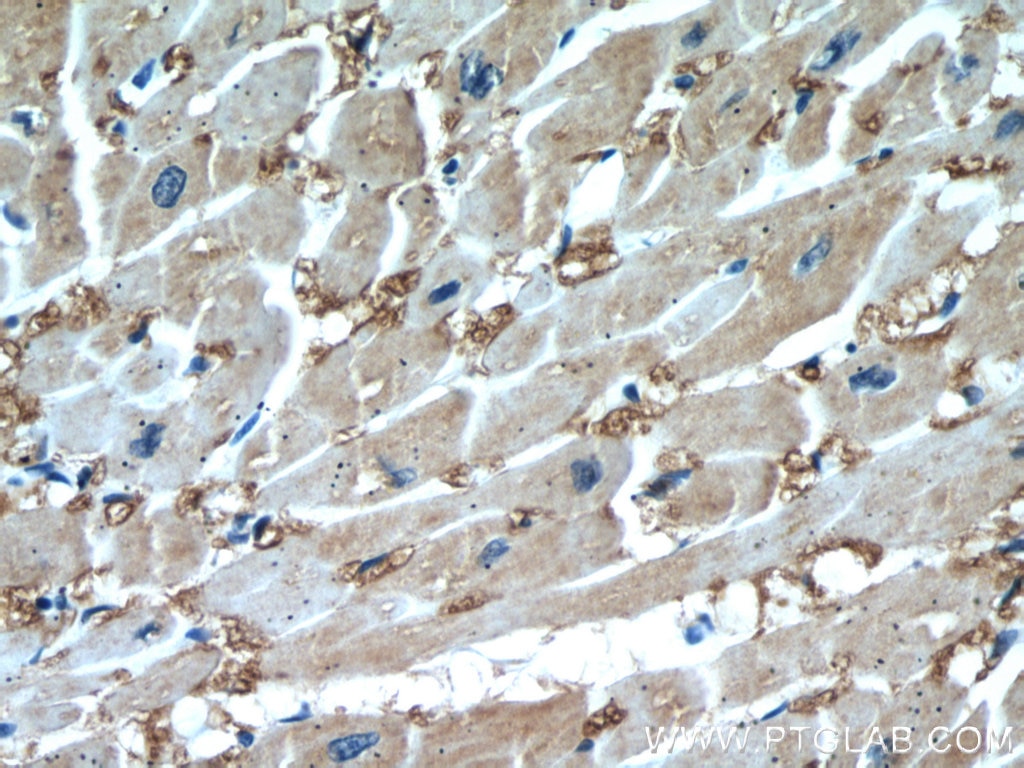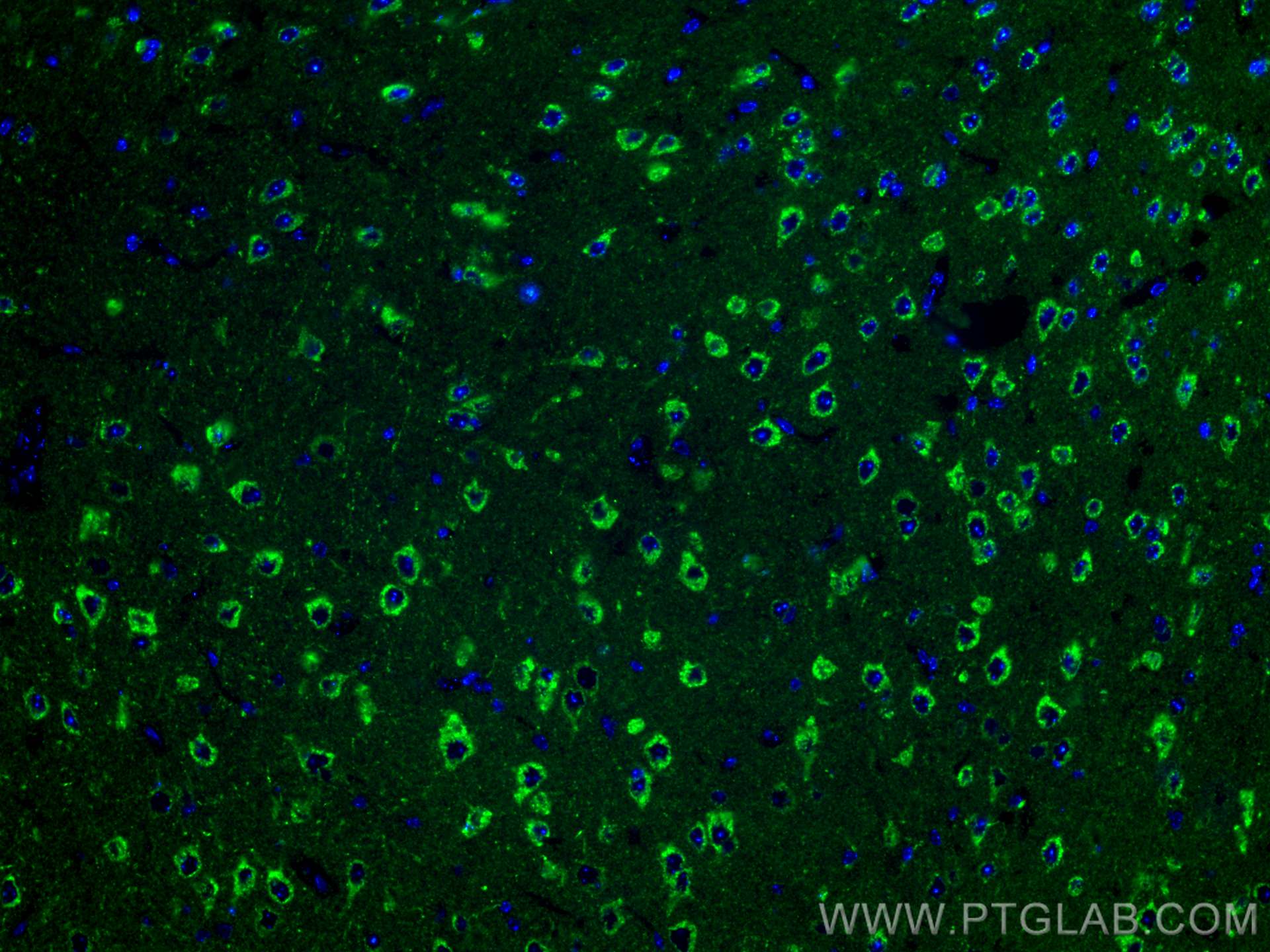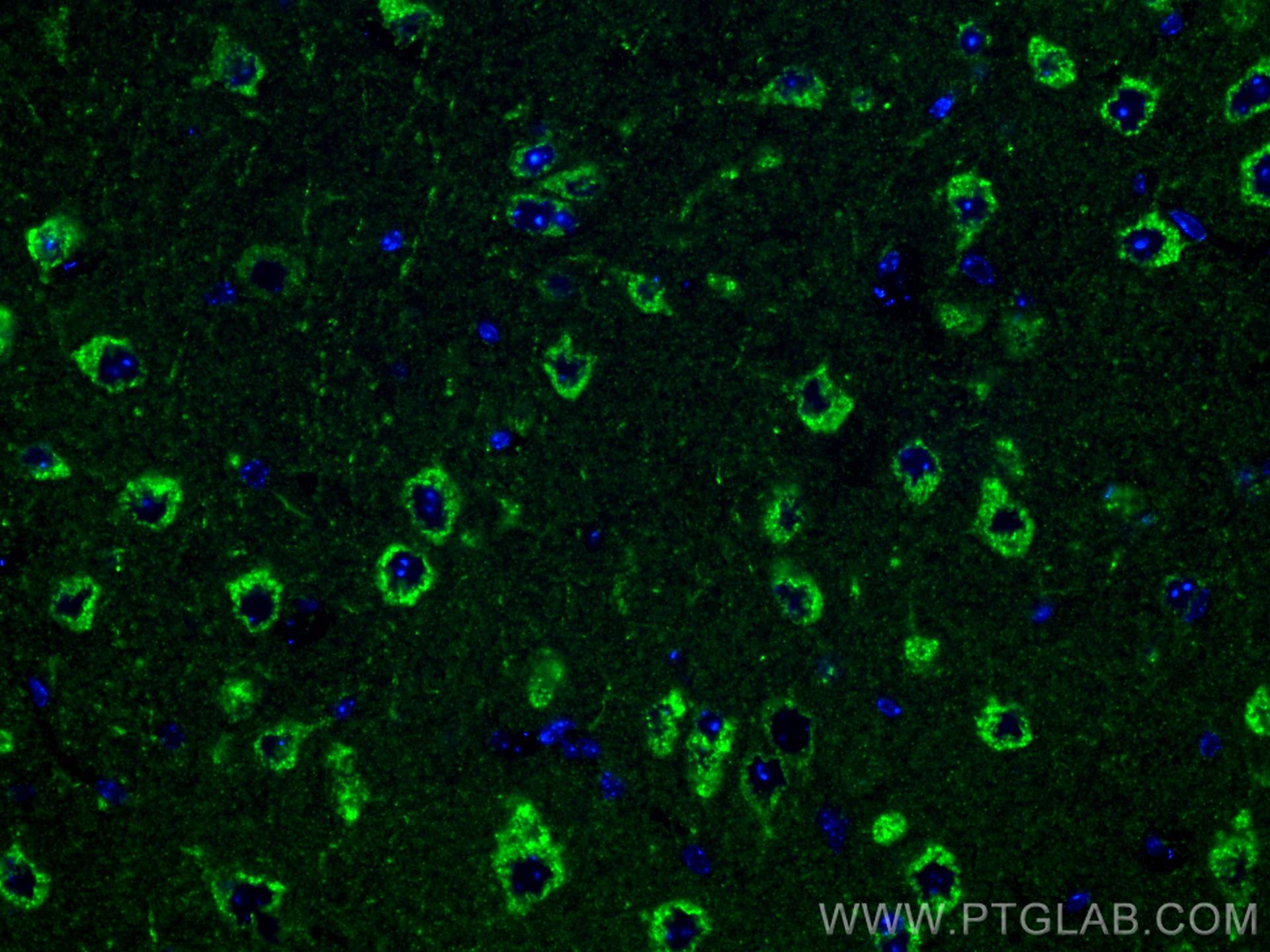- Phare
- Validé par KD/KO
Anticorps Polyclonal de lapin anti-FABP3
FABP3 Polyclonal Antibody for WB, IF, IHC, ELISA
Hôte / Isotype
Lapin / IgG
Réactivité testée
Humain, rat, souris
Applications
WB, IHC, IF-P, IP, ELISA
Conjugaison
Non conjugué
N° de cat : 10676-1-AP
Synonymes
Galerie de données de validation
Applications testées
| Résultats positifs en WB | tissu cardiaque de souris, tissu cardiaque de rat, tissu de muscle squelettique de rat, tissu de muscle squelettique de souris, tissu testiculaire de rat |
| Résultats positifs en IHC | tissu cardiaque de souris, tissu cardiaque humain, tissu cutané humain, tissu de cancer du sein humain, tissu ovarien humain, tissu pulmonaire humain il est suggéré de démasquer l'antigène avec un tampon de TE buffer pH 9.0; (*) À défaut, 'le démasquage de l'antigène peut être 'effectué avec un tampon citrate pH 6,0. |
| Résultats positifs en IF-P | tissu cérébral de souris, |
Dilution recommandée
| Application | Dilution |
|---|---|
| Western Blot (WB) | WB : 1:2000-1:16000 |
| Immunohistochimie (IHC) | IHC : 1:200-1:800 |
| Immunofluorescence (IF)-P | IF-P : 1:50-1:500 |
| It is recommended that this reagent should be titrated in each testing system to obtain optimal results. | |
| Sample-dependent, check data in validation data gallery | |
Applications publiées
| KD/KO | See 1 publications below |
| WB | See 15 publications below |
| IHC | See 2 publications below |
| IF | See 7 publications below |
| IP | See 1 publications below |
Informations sur le produit
10676-1-AP cible FABP3 dans les applications de WB, IHC, IF-P, IP, ELISA et montre une réactivité avec des échantillons Humain, rat, souris
| Réactivité | Humain, rat, souris |
| Réactivité citée | rat, Humain, souris |
| Hôte / Isotype | Lapin / IgG |
| Clonalité | Polyclonal |
| Type | Anticorps |
| Immunogène | FABP3 Protéine recombinante Ag1069 |
| Nom complet | fatty acid binding protein 3, muscle and heart (mammary-derived growth inhibitor) |
| Masse moléculaire calculée | 15 kDa |
| Poids moléculaire observé | 15 kDa |
| Numéro d’acquisition GenBank | BC007021 |
| Symbole du gène | FABP3 |
| Identification du gène (NCBI) | 2170 |
| Conjugaison | Non conjugué |
| Forme | Liquide |
| Méthode de purification | Purification par affinité contre l'antigène |
| Tampon de stockage | PBS avec azoture de sodium à 0,02 % et glycérol à 50 % pH 7,3 |
| Conditions de stockage | Stocker à -20°C. Stable pendant un an après l'expédition. L'aliquotage n'est pas nécessaire pour le stockage à -20oC Les 20ul contiennent 0,1% de BSA. |
Informations générales
FABP3 (fatty-acid-binding protein 3), also known as heart-type FABP or mammary-derived growth inhibitor (MDGI), is a small 15-kDa cytoplasmic protein transporting fatty acids and other lipophilic substances from the cytoplasm to the nucleus. It is most ubiquitously expressed in heart and skeletal muscle.
Protocole
| Product Specific Protocols | |
|---|---|
| WB protocol for FABP3 antibody 10676-1-AP | Download protocol |
| IHC protocol for FABP3 antibody 10676-1-AP | Download protocol |
| IF protocol for FABP3 antibody 10676-1-AP | Download protocol |
| Standard Protocols | |
|---|---|
| Click here to view our Standard Protocols |
Publications
| Species | Application | Title |
|---|---|---|
ACS Nano Nanointegrative In Situ Reprogramming of Tumor-Intrinsic Lipid Droplet Biogenesis for Low-Dose Radiation-Activated Ferroptosis Immunotherapy | ||
Biomaterials MMP-12 siRNA improves the homeostasis of the small intestine and metabolic dysfunction in high-fat diet feeding-induced obese mice. | ||
J Neurosci FABP3 in the Anterior Cingulate Cortex Modulates the Methylation Status of the Glutamic Acid Decarboxylase67 Promoter Region. | ||
Int J Mol Sci Amelioration of Nicotine-Induced Conditioned Place Preference Behaviors in Mice by an FABP3 Inhibitor | ||
J Biol Chem FABP3 promotes αSyn oligomerization associated with MPTP-induced neurotoxicity.
|
Avis
The reviews below have been submitted by verified Proteintech customers who received an incentive forproviding their feedback.
FH Sampath Kumar (Verified Customer) (02-26-2024) | The FABP3 antibody worked well at 1:1000 dilution on rodent skeletal muscle tissue homogenates (6ug total protein), producing bands at 15kDa. However, homogenates from Avian pectoralis muscle homogenates (6ug total protein) produced barely visible bands.
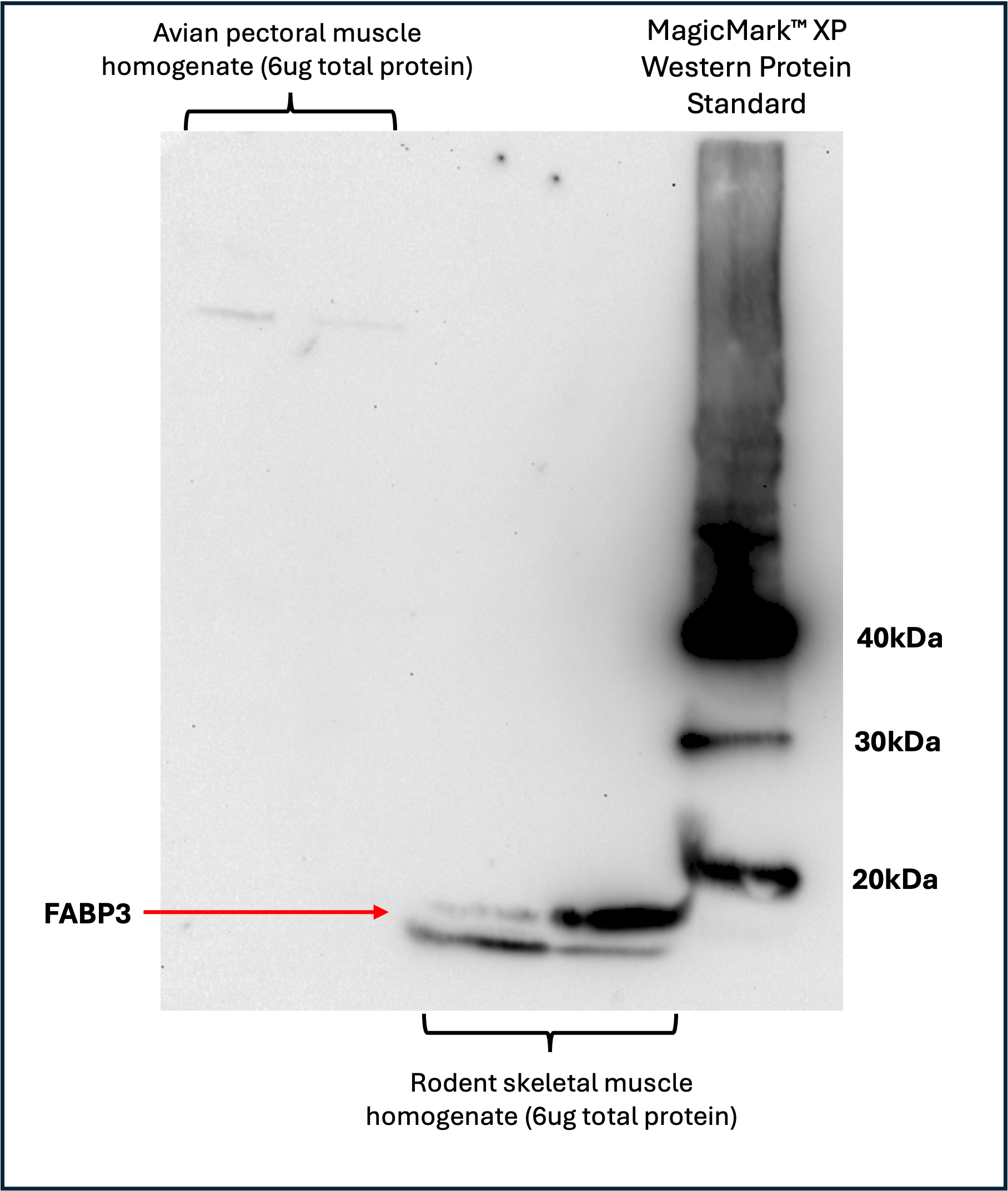 |
